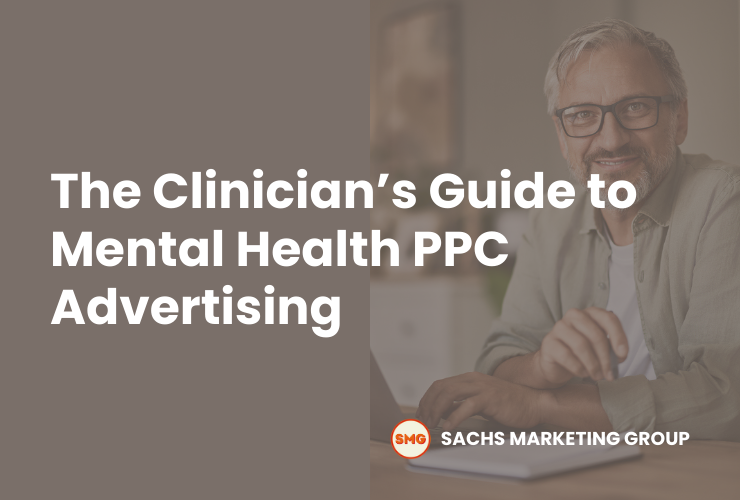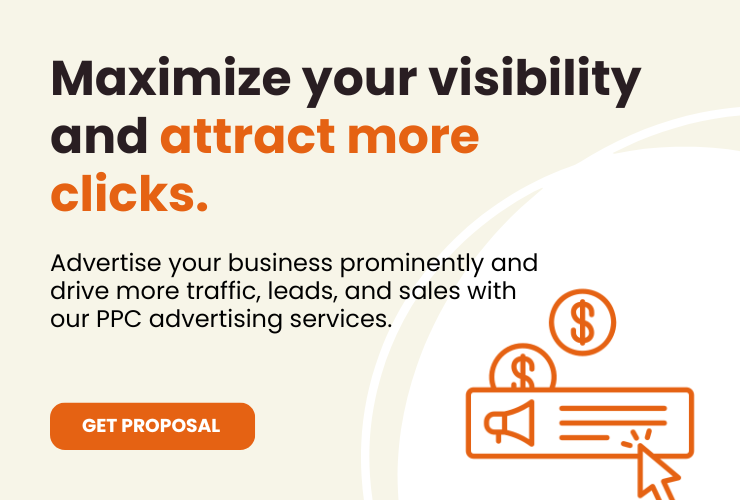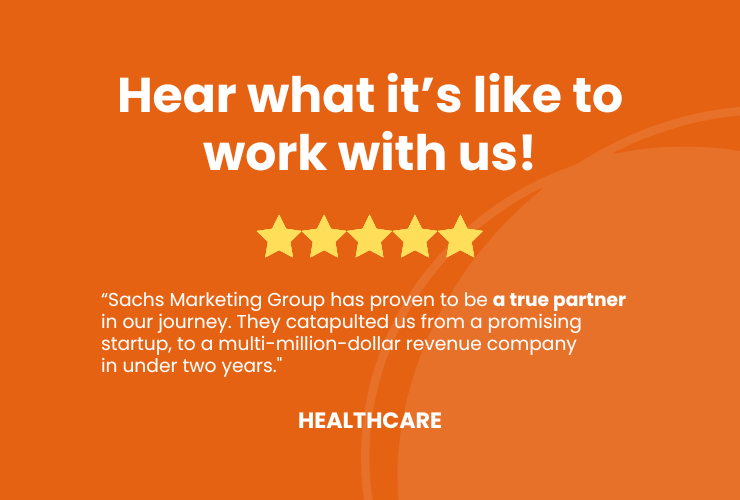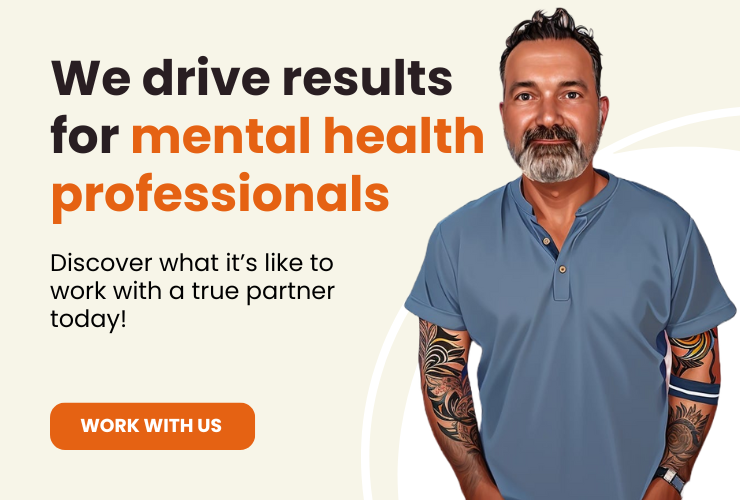When running mental health ads on Google, the most critical aspect is understanding and adhering to Google's advertising policies related to healthcare and medicines. These policies are strict to ensure that ads are ethical, non-exploitative, and sensitive to mental health issues. Compliance is key to avoiding ad disapprovals or account suspensions.
Navigating the realm of mental health ads can be as complex as understanding the mind itself. Pay-per-click (PPC) advertising in this sensitive field demands a strategy that respects its delicacy while effectively reaching those in need. Balancing empathy with marketing insight is vital. For the best results, we recommend integrating your paid advertising efforts into your overall mental health marketing strategy.
In this article, you will discover everything you need to know about mental health ads and creating your first mental health PPC advertising campaign.
Overview
What is PPC Advertising?
PPC, or pay-per-click advertising, is a digital marketing model where advertisers pay a fee each time their ad is clicked. It's essentially buying visits to your site, rather than earning them organically through SEO. In mental health advertising, PPC allows for targeted campaigns that reach individuals actively seeking mental health services, offering timely and relevant support.
1 in 5 U.S. adults experience mental illness each year. PPC Advertising can help ensure people searching for help see your brand.
The Key to Advertising Mental Health Services
Effective advertising in mental health services hinges on empathy and ethical responsibility. These ads should transcend mere promotion, instead resonating deeply with those seeking help. By integrating understanding and support within the messaging, they create a personal connection with the audience.
An educational element is crucial, as it helps demystify mental health and positions your services as a reliable resource. Ethical marketing is non-negotiable, prioritizing honesty and cultural sensitivity to reach a diverse audience. Storytelling can enhance this connection, sharing narratives that illustrate the positive impact of your services.
In sum, mental health advertising is not just about business promotion; it's about establishing trust and offering genuine support to those in need.
How to Run Effective Mental Health PPC Ads
Effective mental health PPC ads should resonate with the target audience while adhering to advertising guidelines. In some cases, mental health websites may need to pay close attention to these guidelines, as advertising platforms often have specific policies in place regarding certain areas that relate to mental health, such as addiction or drug-assisted psychotherapies.
Ads need to be crafted with care, focusing on providing help and information rather than making claims about treatments. For the best results, ads should point to specific pages that are designed and optimized to enhance the quality score of the ad. This can help ensure your ad appears over the competition.
Here are 10 tips for running effective mental health ads.
1. Keyword Research
Effective keyword research is the foundation of any successful PPC campaign, especially for clinical mental health services.
Start by identifying keywords and phrases that potential clients are likely to use when searching for mental health support. This research should encompass a broad range of terms, including general ones like "mental health services," and more specific ones such as "anxiety therapy" or "depression counseling."
Utilize tools like Google Keyword Planner to gauge search volume and competition for these terms. Remember to also consider long-tail keywords – these are longer, more specific phrases that may have lower search volumes but are often highly targeted and less competitive.
By carefully selecting the right keywords, you can ensure that your ads reach the most relevant audience, increasing the likelihood of engagement and conversion.
2. Optimize Ad Copy for Empathy
Creating empathetic ad copy is essential in attracting and resonating with those seeking mental health services.
Your ad copy should reflect a deep understanding of the emotional states and challenges faced by individuals looking for help. Use language that is compassionate, supportive, and non-judgmental.
Avoid clinical jargon and opt for terms that are relatable and reassuring. Your ads should convey a message of hope and assistance, emphasizing that help is available and accessible. Include phrases that address common feelings and concerns, such as "seeking understanding," "non-judgmental support," or "confidential and caring therapy."
The goal is to make potential clients feel that they will be understood and cared for, encouraging them to take the next step toward seeking help.
3. Highlight Qualifications and Credibility
When advertising clinical mental health services, it's essential to establish trust and credibility with your audience.
This involves highlighting the qualifications, certifications, and expertise of the mental health professionals associated with your services. In your ad copy and on your landing pages, detail the credentials of your team, such as their degrees, licenses, and years of experience in the field.
If your practice specializes in certain areas of mental health, make sure to mention this. You can also include any awards, recognitions, or affiliations with reputable organizations in the field of mental health. Trust is a critical factor in a potential client’s decision-making process, and showcasing your qualifications and credibility can significantly influence their choice to seek your services.
4. Create Informative Landing Pages
The landing page is where potential clients land after clicking on your ad, and it plays a crucial role in converting interest into action. Your landing pages should be informative, clearly outlining the mental health services you offer.
They should provide detailed descriptions of your services, the benefits they offer, and how they address specific mental health issues. Include information about treatment approaches, session formats (like in-person or telehealth), and any unique methodologies or techniques used.
Ensure the design of the landing page is welcoming and calming, with an easy-to-navigate layout. Incorporate elements like FAQs, client testimonials (with due respect to confidentiality), and educational resources.
A well-structured, informative landing page not only informs potential clients but also helps in building their confidence in choosing your services.
5. Understand Google’s Healthcare Policies
When advertising clinical mental health services, it's crucial to thoroughly understand and comply with Google's specific policies regarding healthcare and medicines.
Google has stringent guidelines to ensure that healthcare-related ads are truthful, non-misleading, and respectful of users' privacy and dignity. These policies cover various aspects, including prohibited content (such as promoting certain types of medical and mental health treatments), restrictions on advertising methods, and requirements for advertisers (like necessary qualifications and certifications).
Familiarize yourself with these rules to avoid ad disapprovals or account suspensions. Depending on what your practice offers, you may need to be LegitScript certified to run ads on certain platforms, like Google. If your practice offers certain services involving drug-assisted psychotherapy, such as ketamine-assisted psychotherapy, you might need to adjust your campaign to run ads.
Remember, these policies are in place not only to adhere to legal requirements but also to maintain a high level of trust with potential clients seeking mental health services. Working within the guidelines can be time-consuming and frustrating if your ads continue to be rejected. Fortunately, a digital marketing agency that offers PPC advertising can help handle this for you and even assist you during the process of establishing LegitScript certification.
Other advertising solutions, including Bing or social media advertising on Facebook or Instagram, may be more lenient than Google's guidelines, so be sure to explore all of your options.
6. Budget Management
Effective budget management is critical in PPC advertising, especially for niche markets like clinical mental health services.
Start by determining a realistic budget that aligns with your business goals and the competitive landscape of your market. Divide your budget into daily and monthly allocations to maintain control over spending.
Use tools provided by ad platforms to set maximum bids for clicks and impressions, ensuring you don't overspend. It’s important to regularly review your campaign's performance against your budget. If certain keywords or ad groups are not performing well, consider reallocating your budget to more effective areas. Be flexible and ready to adjust your budget based on the campaign's performance and ROI.
Proper budget management ensures you get the most out of your PPC investment without unnecessary overspending.
7. Track and Analyze Data
Tracking and analyzing data is crucial for the success of any PPC campaign. Utilize analytics tools to monitor key performance indicators (KPIs) such as click-through rates, conversion rates, cost per click, and overall ROI.
Analyze which keywords and ad formats are driving the most engagement and conversions. Pay attention to user behavior on your landing pages to understand what works and what doesn’t.
Regularly reviewing this data helps in identifying trends, strengths, and areas for improvement. Use these insights to refine your ad copy, adjust your bidding strategies, and optimize your landing pages.
Continuous monitoring and data analysis allow for agile adjustments to your campaign, ensuring it remains effective and aligned with your marketing objectives.
8. Highlight Privacy and Confidentiality
In the realm of clinical mental health services, privacy, and confidentiality are paramount concerns for potential clients. It's essential to communicate clearly in your PPC ads and landing pages how you safeguard client information and uphold confidentiality.
Assure potential clients that their privacy is a top priority and that all interactions and communications will be handled with the utmost discretion. You can include statements about your adherence to Health Insurance Portability and Accountability Act (HIPAA) regulations or any other relevant privacy laws in your region.
Mentioning secure communication channels, encrypted data storage, and other privacy measures can also instill confidence in potential clients.
By highlighting your commitment to privacy and confidentiality, you address a key concern of your audience, thereby enhancing the trustworthiness of your services.
9. Use Clear Call-to-Actions
A clear and compelling call-to-action (CTA) in your PPC ads and on your landing pages is critical for guiding potential clients toward the next step in their journey.
Your CTA should stand out and be concise, directing users clearly on what to do next - whether it’s to book a consultation, call for more information, or download a resource.
Use action-oriented calls-to-action, such as “Schedule Your Appointment Today,” “Get Professional Help Now,” or “Contact Us for Confidential Support.” It’s also beneficial to align the CTA with the specific stage of the customer journey.
For example, if the target audience is still in the information-gathering phase, a CTA like “Learn More About Our Services” might be more appropriate than one prompting immediate booking.
10. Hire A Mental Health Ads Specialist
For effective PPC advertising in the sensitive and specialized field of clinical mental health, consider hiring a mental health ads specialist.
These professionals have expertise in both digital marketing and the unique nuances of advertising mental health services. They are skilled in navigating the complexities of Google’s healthcare policies, crafting empathetic ad copy, and targeting the right audience.
A specialist can help in designing optimized landing pages that resonate with potential clients and ensure compliance with privacy and ethical standards. Additionally, they can manage your campaign budget efficiently, track and analyze performance data, and make informed adjustments for optimal results.
Hiring a specialist can save you time and resources while enhancing the effectiveness and compliance of your PPC campaigns in the mental health sector.
Need Help With Your Mental Health Ads?
If you want to create mental health ads that appear when people look for help online, Sachs Marketing Group is here to help.
Sachs Marketing Group is a full-service digital marketing agency with a dedicated PPC advertising team, capable of creating and managing your mental health ad strategy effectively.
We specialize in crafting empathetic, compliant PPC campaigns tailored for the mental health space and have over a decade of experience.
Reach out to Sachs Marketing Group today and let us elevate your mental health advertising to connect with those who need it most.
Get a free, no obligation review of your digital marketing strategy!
"*" indicates required fields





